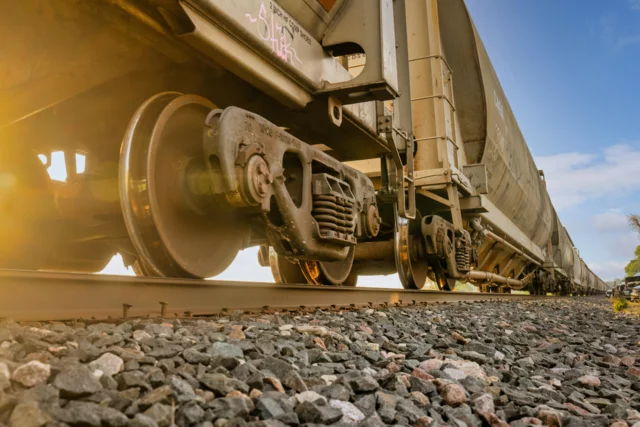
The Rowena Fire, which erupted near the Columbia River Gorge on Wednesday, June 11th has burned over 3,800 acres including over 49 homes and forced urgent evacuations as flames approached homes and structures in Wasco County, Oregon. While fire crews have made progress containing the blaze, questions are mounting about what ignited it. Is this yet another preventable disaster linked to corporate negligence? With the cause of the fire still under investigation, officials list it as “human activity of some kind.” Meanwhile, numerous social media posts claim witnessing a Union Pacific train passing through the area moments before the blaze ignited, prompting questions about whether the railroad played a role in this disaster.
Concerns Mount Over Railroads and Wildfire Risks
If confirmed, the Rowena Fire would be part of a growing and deeply troubling pattern of train-caused wildfires across the Pacific Northwest. Just last year, Singleton Schreiber filed a lawsuit in Washington against Burlington Northern Santa Fe Railway (BNSF) for its negligent operation of a 46-year-old locomotive and failure to maintain the tracks that caused the Tunnel 5 Fire. The fire similarly destroyed homes, displaced hundreds, and required a massive emergency response.
The Rowena Fire shares several alarming similarities:
- A fast-moving fire igniting near active railway tracks
- High-risk fire weather conditions
- Proximity to dry vegetation with no apparent vegetation control
- Eyewitness accounts of train activity immediately before ignition
These parallels suggest a pattern of preventable disasters that have ravaged communities and their residents.
Lasting Consequences for At-Risk Communities
For Wasco and the surrounding communities, the impacts of the Rowena Fire are immediate and devastating. Survivors face losing their homes, evacuation trauma, smoke and ash damage, interruption of business, and long-term emotional and financial hardship. Fires in this region don’t just destroy property—they disrupt lives, tear apart communities, and damage fragile ecosystems that may take decades to recover.
When corporate negligence leads to this kind of destruction, survivors deserve answers and accountability.
Legal Pathways for Accountability
If rail activity is confirmed as the ignition source, Union Pacific could face liability under Oregon’s negligence laws. Based on the legal principle of proximate cause, companies can be held accountable not only for the initial fire, but also for the full scope of foreseeable harm it causes including evacuation costs, emotional distress, property loss, and economic disruption.
These cases are complex, but legal precedent illustrates how corporations can and should be held responsible when their actions lead to preventable tragedies.
Singleton Schreiber: Fighting for Fire Victims
At Singleton Schreiber, we represent wildfire survivors across the West, including those harmed by rail-caused fires. With the largest fire litigation practice in the country, our attorneys are experienced in holding powerful corporations accountable when their reckless or negligent conduct leads to destruction and displacement. We have represented over 30,000 fire victims across the country, including the 2025 Eaton and Hurst Fires, 2023 Maui wildfires, the Colorado Marshall wildfire, the Washington Gray wildfire, the Tunnel 5 fire, and more.
Our team is actively investigating the Rowena Fire and gathering evidence to determine whether Union Pacific or another rail operator played a role in this disaster. If you or your family have been impacted, whether through evacuation, smoke damage, or loss of property, you may have legal options.
- Managing Partner
Gerald Singleton began his legal career as a trial attorney at Federal Defenders of San Diego in 2000, where he represented federal criminal defendants in the Southern District of California and before the Ninth Circuit Court of ...

